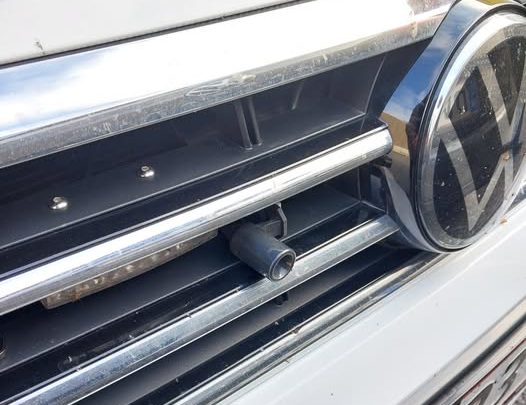Volkswagen has taken a heavy financial hit this year, with tariffs and troubles at its luxury brand Porsche wiping out much of its earnings.
Others are reading now
Volkswagen has taken a heavy financial hit this year, with tariffs and troubles at its luxury brand Porsche wiping out much of its earnings. The German automaker posted a 61% drop in profit for the first three quarters of 2025, highlighting the growing pressures on Europe’s largest carmaker.
Double blow to profits
The company reported that U.S. import tariffs alone have cost €2.1 billion so far this year, while Porsche’s abrupt change in its electrification strategy triggered an additional €4.7 billion in charges. Combined, these setbacks have reduced Volkswagen’s profit to €3.405 billion through September and led to operating losses of €1.3 billion in the third quarter.
Porsche, in which Volkswagen holds a 75.4% stake, has seen its own profits collapse by 95% this year and expects to close 2025 with losses of about €1.8 billion. The luxury brand scrapped plans to produce fully electric versions of several models, including the Cayenne, after weak demand in key markets such as China and North America.
Leadership shake-up
The turmoil has prompted changes at the top. Porsche’s board has requested the departure of long-time CEO Oliver Blume, who will now focus solely on his role as head of the Volkswagen Group. Starting next year, Michael Leiters, former chief executive of McLaren, will take over Porsche’s leadership with the task of steering the brand through one of its toughest periods in recent memory.
Volkswagen Group CFO Arno Antlitz said the results reflect a “mixed situation,” noting the commercial success of several models despite mounting external pressures. “In Europe, one in four electric cars belongs to the Volkswagen Group,” he said, pointing to continued progress in restructuring efforts.
Also read
Electric pressure and rising costs
The company’s shift toward electric vehicles has also squeezed margins. Battery-powered models generate lower profits than combustion cars, Antlitz acknowledged. Overall, Volkswagen recorded €7.5 billion in charges linked to tariffs, Porsche’s product strategy adjustments, and a goodwill impairment at the luxury division.
Revenue for the first nine months edged up just 0.5% to €238.67 billion, with total vehicle sales rising 1.2% to 6.6 million units. Growth came mainly from Skoda and Cupra, which offset declines at Porsche and Audi.
The Brand Core Group — which includes Volkswagen, Seat/Cupra, Skoda, and Commercial Vehicles — increased revenue by 5.3% and profit by 6%. In contrast, the Progressive Brand Group, led by Audi, saw operating profit drop 25%, while Porsche’s division posted an 8% revenue fall and €288 million in losses.
Outlook and industry risks
Volkswagen maintained its full-year revenue forecast of around €325 billion but expects its operating margin to shrink from 9% in 2024 to between 5% and 6%. It also estimates that the total cost of global tariffs could reach €5 billion next year.
The company faces further uncertainty from a suspension of semiconductor deliveries by Chinese supplier Nexperia, which threatens to disrupt production across the European automotive sector. ACEA, the industry’s trade association, has warned that assembly lines could face shutdowns if component supplies are not restored soon.
Also read
Volkswagen is pressing ahead with its cost-cutting program, which includes eliminating about 35,000 jobs by 2030 to save roughly €4 billion and improve efficiency. The group remains Europe’s top-selling EV maker, but ongoing market volatility and competition from Chinese automakers continue to weigh on its outlook.
Sources: Volkswagen Group, ACEA, Reuters, Bloomberg


